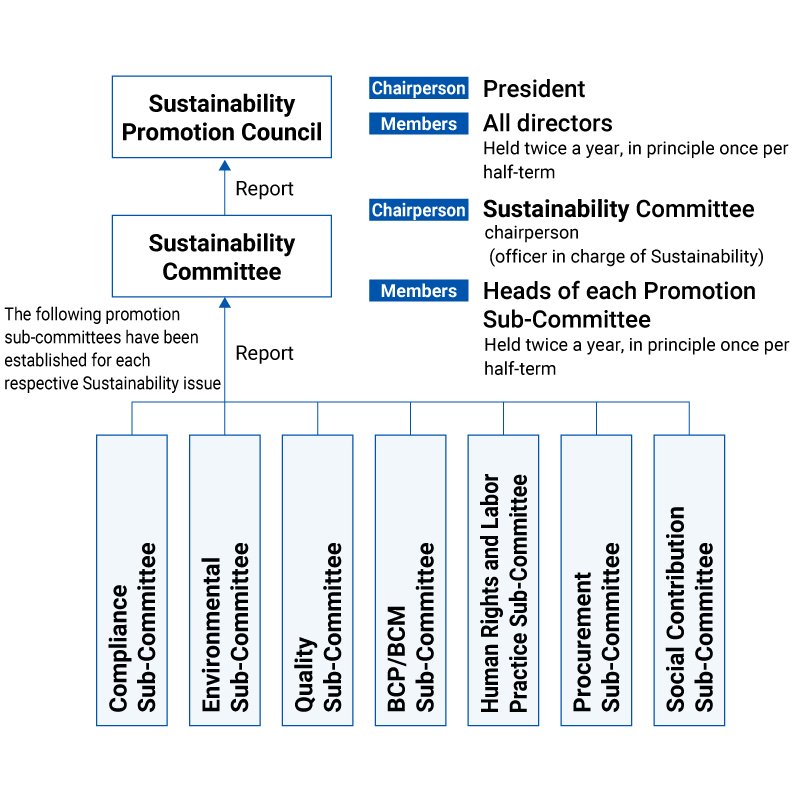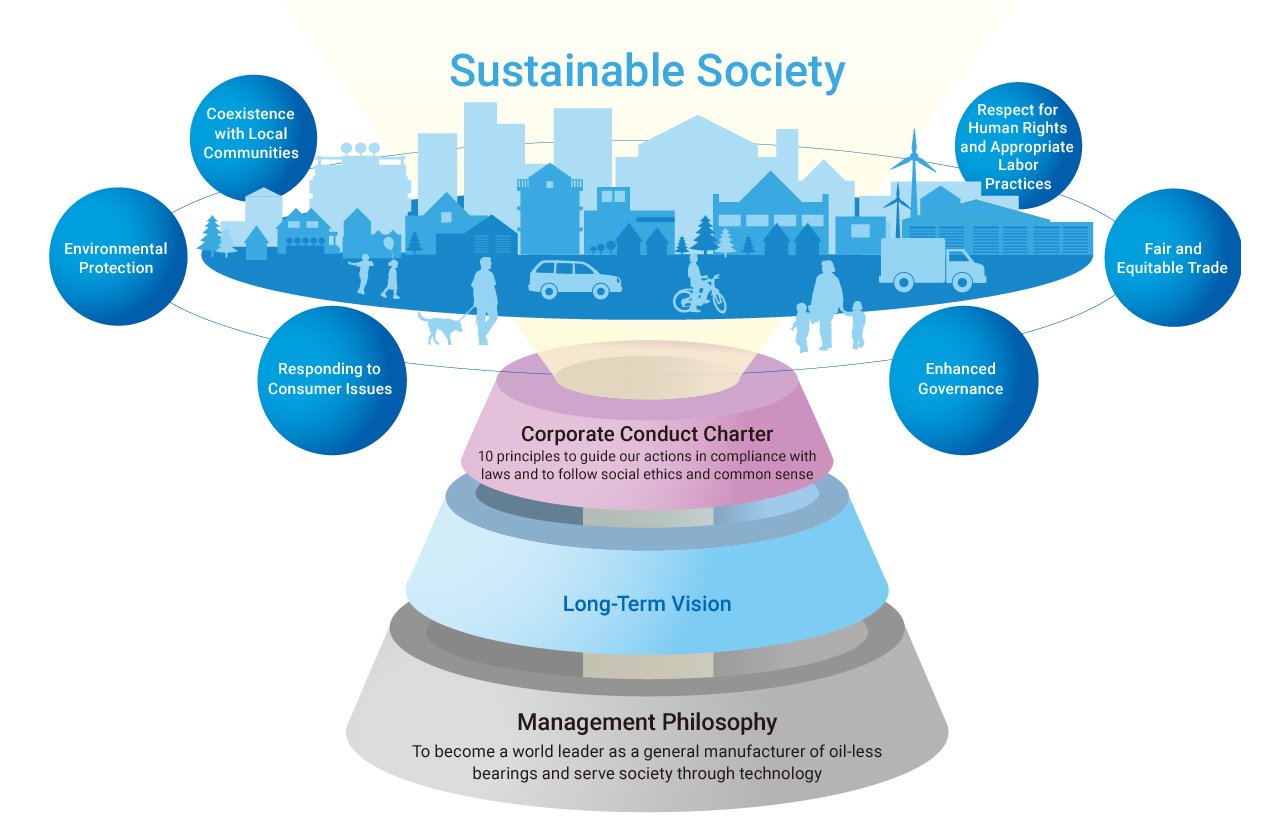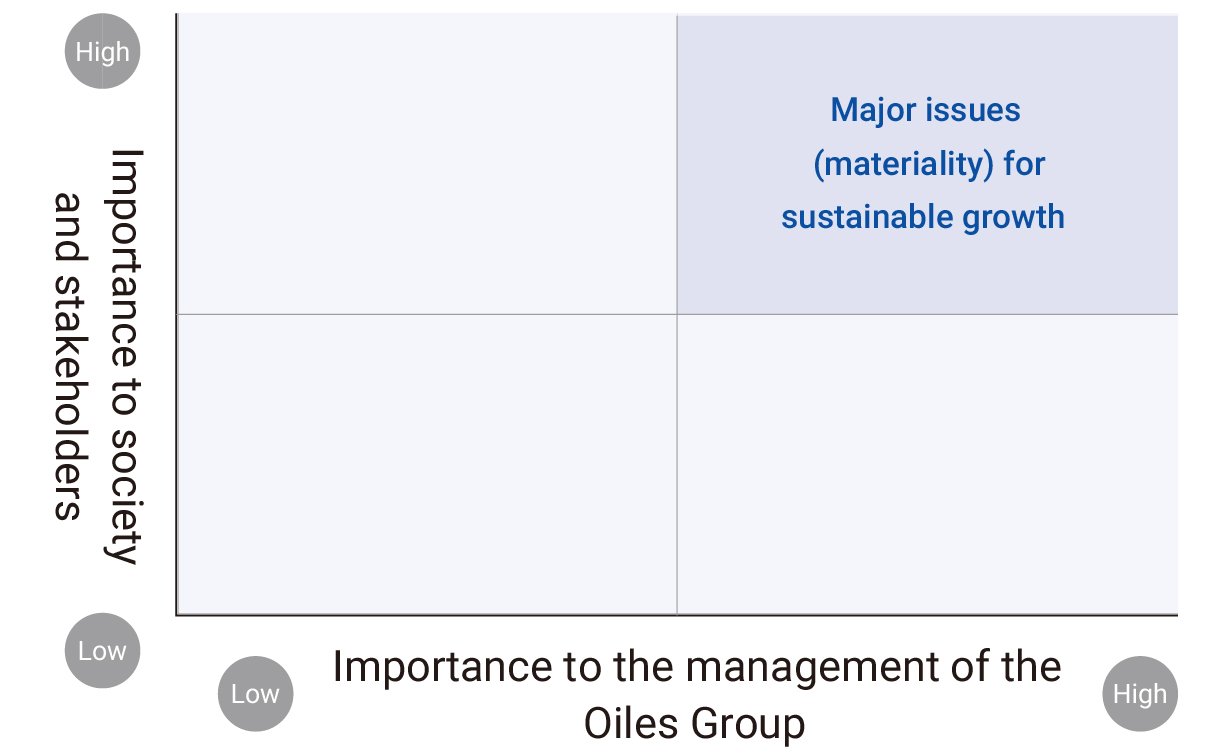With various global initiatives for achieving the Sustainable Development Goals (SDGs) adopted at the United Nations Summit, companies are growing aware that achieving sustainability is an important management priority.
The Oiles Group positively and actively tackles sustainability issues based on the spirit of "serving society through technology," expressed in our corporate philosophy, to achieve development and create new corporate value for the Group.
We position our contribution to solving the sustainability issues exemplified by Environment, Society, and Governance as the mainstay of our corporate activities and promote various initiatives to do so.
Achieving sustainability depends upon fostering a corporate culture in which each and every employee views sustainability as a key value under the leadership of top management. The Sustainability Promotion Council, chaired by the president and attended by all directors, convenes twice a year to deliberate on important sustainability issues, such as the policy and status of ESG initiatives, including environmental efforts and diversity.
Established under the Sustainability Promotion Council is the Sustainability Committee, a working department chaired by the officer in charge of sustainability. Under the umbrella of the Sustainability Committee, we have established seven promotion sub-committees, which work toward resolving sustainability issues.
The Oiles Group focuses on six key topics: 1. Enhanced Governance, 2. Responding to Consumer Issues, 3. Environmental Protection, 4. Respect for Human Rights and Appropriate Labor Practices, 5. Fair and Equitable Trade, and 6. Coexistence with Local Communities to promote sustainability activities. Through sincere and fair business activities based on our Management Philosophy, Long-Term Vision, and Oiles Group Corporate Conduct Charter, we work to put these key topics into practice as we fulfill our responsibilities as a company toward sustainability issues.
In order to achieve the OILES 2030 VISION and the 2024-2026 Medium-Term Management Plan, the Oiles Group recognizes the importance of achieving sustainable growth as a company based on the further development of non-financial capital (including human capital, intellectual capital, natural capital). Accordingly, we have identified “major issues (materiality) for our sustainable growth.”
By enhancing our efforts to address materiality, the Oiles Group will help to address social issues, such as the SDGs, to achieve sustainable growth (increasing corporate value).
Step 1: Identifying the social issues to be addressed
Based on sources that include international standards such as ISO 26000, major guidelines, ESG ratings, and international integration frameworks, we identified more than 50 social issues that companies are expected to address to achieve sustainable growth.
Step 2: Analyzing the importance to society and stakeholders (vertical axis assessment)
We assessed the level of importance of the issues identified above to society and stakeholders (vertical axis assessment) while referring to the assessment parameters of ESG assessment organizations and supplier survey items.
Step 3: Analyzing the level of importance to the management of the Oiles Group (horizontal axis assessment)
We added the issues identified above to the Long-Term Vision and assessed their importance to the management of the Oiles Group from the perspectives of both our new medium-term management plan and the implementation of each department's plans (horizontal axis assessment).
Step 4: Identifying major issues (materiality)
Using the materiality matrix based on the above vertical and horizontal axis assessments, the Sustainability Promotion Council, composed of management members, identified the major issues (materiality) necessary for the sustainable growth of the Oiles Group.










